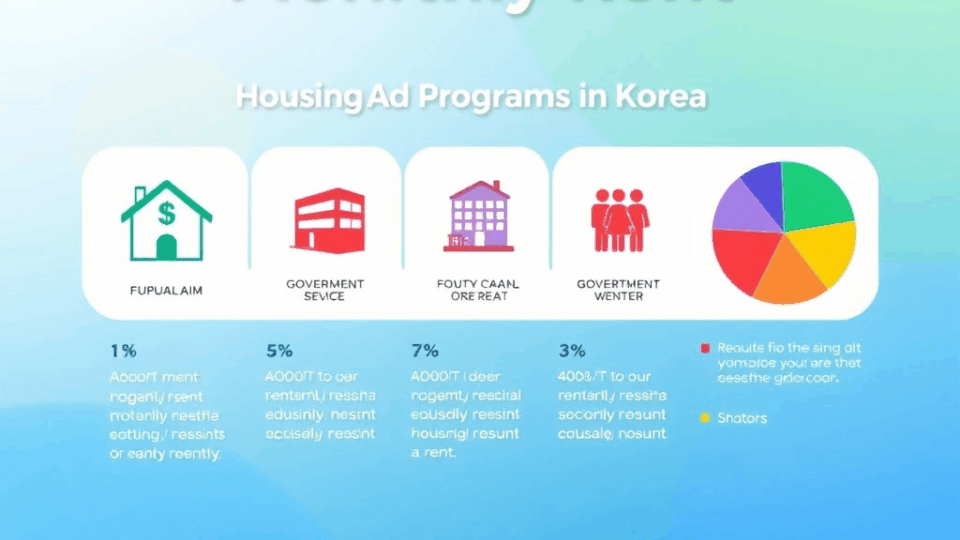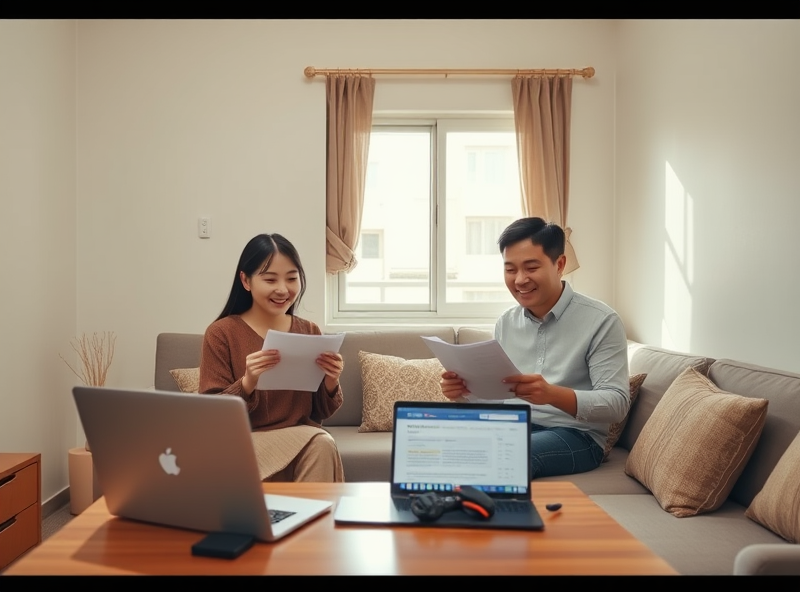
How to Reduce Monthly Rent: Housing Aid Programs in Korea
Youth Monthly Rent Support Program Overview

For young adults in Korea struggling with high rent costs, the Youth Monthly Rent Support Program offers meaningful financial relief. This government-backed initiative is designed to ease the housing burden for individuals aged 19 to 34 who meet specific income and asset criteria.
Under this program, eligible applicants can receive up to 200,000 KRW per month for a maximum of 12 months. The support is directly deposited into the applicant’s bank account, making it easier to manage monthly rent payments. To qualify, your household income must be below 60% of the median income, and your total assets must not exceed a certain threshold, which is updated annually.
Applications are typically accepted through the local city or district office (gu office), and some regions may offer online applications via their official websites. Required documents usually include proof of income, a copy of the rental contract, and identification.
This program is especially helpful for students, job seekers, and newly employed individuals who are financially independent but still building their careers. It not only reduces financial stress but also promotes stable living conditions, which are essential for personal and professional growth.
For more detailed and updated information, you can visit the official Ministry of Land, Infrastructure and Transport website: https://www.molit.go.kr
If you’re a young adult renting in Korea, this program could significantly reduce your monthly expenses and help you focus on your future goals.
Housing Voucher System and Future Plans

If you’re living in Korea and struggling with high monthly rent, the Housing Voucher System (주거급여 제도) could be a valuable lifeline. This government-supported program helps low-income households by subsidizing a portion of their rent, making housing more affordable and stable.
The housing voucher is part of Korea’s broader National Basic Livelihood Security System and is managed by the Ministry of Land, Infrastructure and Transport. Eligible recipients receive monthly financial support based on household income, size, and local housing costs. As of 2024, the maximum support for a single-person household in Seoul can reach up to 330,000 KRW per month, depending on specific conditions.
To apply, residents must visit their local community service center (주민센터) or apply online through the Government24 portal. The application process includes income verification and a housing inspection to ensure eligibility. You can check more details and eligibility criteria on the official site: https://www.bokjiro.go.kr/ssis-teu/index.do
Looking ahead, the Korean government plans to expand the program’s reach by increasing the income threshold and improving support for vulnerable groups such as single parents, the elderly, and young adults. There are also discussions about introducing a digital housing voucher system to streamline the process and reduce administrative burdens.
Understanding and utilizing the Housing Voucher System can significantly reduce your monthly rent burden and provide greater housing security. If you or someone you know is eligible, it’s worth exploring this helpful program.
Upcoming Real Estate Policy Changes in 2025

Starting in 2025, South Korea is set to implement several real estate policy changes aimed at improving housing affordability and market transparency. These updates are particularly important for renters and first-time homebuyers, as they could significantly affect monthly rent and access to housing aid programs.
One of the most anticipated changes is the expansion of the ‘Jeonse Deposit Protection System’. This will offer greater financial security to tenants by increasing the coverage limit for deposit returns in case of landlord default. Additionally, the government plans to revise the Real Estate Transaction Reporting Act to include stricter regulations on false listings and price manipulation, ensuring a more transparent rental market.
Another key policy is the introduction of a ‘Public Rental Housing Expansion Plan’, which aims to add over 100,000 new public rental units by 2025. These units will be offered at below-market rates, targeting low-income households, newlyweds, and young adults. This initiative is expected to ease demand pressure in the private rental market, potentially lowering average monthly rents.
For those looking to buy, the government will adjust mortgage lending rules to support first-time buyers, including a higher loan-to-value (LTV) ratio and extended repayment periods. These changes will make homeownership more accessible, indirectly reducing long-term rental dependency.
These policy updates reflect the government’s commitment to creating a more stable and equitable housing environment. If you’re currently renting or planning to move in 2025, staying informed about these changes can help you make smarter financial decisions.
For more detailed information, you can visit the official Ministry of Land, Infrastructure and Transport (MOLIT) website: https://www.molit.go.kr
Youth Monthly Rent Support Program Overview

If you’re a young adult living in Korea and struggling with high monthly rent, you’re not alone. Fortunately, the Korean government offers a targeted program called the ‘Youth Monthly Rent Support Program’ (청년 월세 지원사업) to help ease this burden. This initiative is designed for individuals aged 19 to 34 who meet specific income and asset criteria.
Eligible applicants can receive up to 200,000 KRW per month for a maximum of 12 months. The support is directly deposited into the applicant’s bank account, making it easier to manage monthly housing expenses. To qualify, your household income must be below 60% of the median income, and your total assets must fall under the set threshold. The application process is typically handled through your local district office or the Ministry of Land, Infrastructure and Transport’s official website.
One of the best parts of this program is that it doesn’t require you to move or change your current housing situation. As long as you meet the criteria and submit the necessary documents—such as your lease agreement, income proof, and resident registration—you can receive support while staying in your current home.
For the most accurate and updated information, you can visit the official site of the Ministry of Land, Infrastructure and Transport: https://www.molit.go.kr
This program is a great step toward financial independence and stability for young adults in Korea. If you’re eligible, don’t miss the opportunity to apply!







